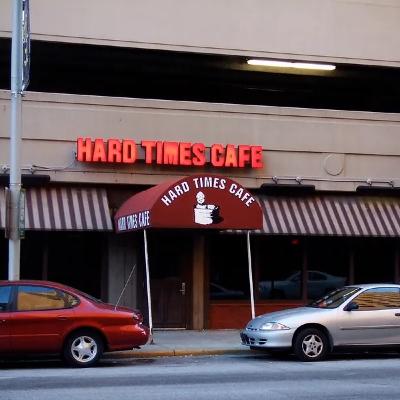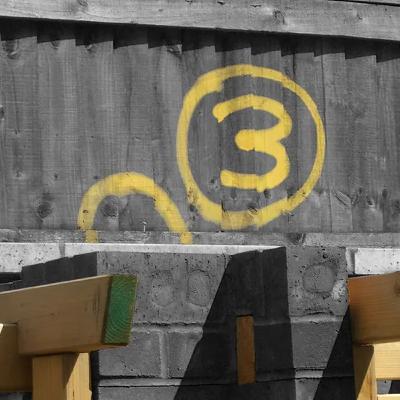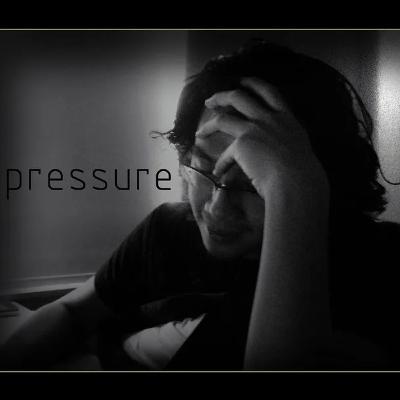Discover The Accidental Negotiator
The Accidental Negotiator

The Accidental Negotiator
Author: Jim Anderson
Subscribed: 39Played: 519Subscribe
Share
© Jim Anderson
Description
Professional negotiating is not just a business, it’s a science. Nobody knows more about the science of negotiating than Dr. Jim Anderson.
“I don’t embrace excuses for why your last negotiation was not successful, I embrace solutions.”
Over the last 25 years, Dr. Anderson has transformed failing negotiators worldwide.
Dr. Jim Anderson has spent 25 years negotiating everything from small sales with individual owners of companies to large scale military project contracts with teams of sales negotiators.
Welcome to the premier podcast for learning how to make sales negotiations effective! Support this podcast: https://podcasters.spotify.com/pod/show/jim-anderson52/support
“I don’t embrace excuses for why your last negotiation was not successful, I embrace solutions.”
Over the last 25 years, Dr. Anderson has transformed failing negotiators worldwide.
Dr. Jim Anderson has spent 25 years negotiating everything from small sales with individual owners of companies to large scale military project contracts with teams of sales negotiators.
Welcome to the premier podcast for learning how to make sales negotiations effective! Support this podcast: https://podcasters.spotify.com/pod/show/jim-anderson52/support
149 Episodes
Reverse
Making concessions during a negotiation is something that none of us really want to do.
We don’t like having to give into the other side on an issue. However, I think that we all realize that in order to reach a deal with the other side, no matter what negotiation styles or negotiating techniques we are using we always have to make concessions. What we need to realize is that each concession that we make is a critical part of how we are going to reach the deal that we want.
Not only do we need to know what concessions we are willing to make, but we also have to know how to go about making those concessions.
---
Support this podcast: https://podcasters.spotify.com/pod/show/jim-anderson52/support
As negotiators we are always on edge when we enter into a negotiation.
There are a host of questions that are running through our mind and we are searching for ways to be successful. One of the biggest questions that we deal with has to do with the first offer that is going to be made during the negotiations. Should we use our negotiation styles and negotiating techniques to be the ones who make it or should we sit back and wait for the other side?
If we do make an offer, should it be a strong offer or do we risk alienating the other side?
---
Support this podcast: https://podcasters.spotify.com/pod/show/jim-anderson52/support
When you use your negotiation styles and negotiating techniques to enter into a negotiation, just exactly how much do you know about the other side?
What you probably have are a number of assumptions that are going to be boosted by the first impressions that the other side makes when you meet them. A question that we should all be asking ourselves is if this is really the best way to go about preparing to negotiate?
Could we be getting things wrong?
---
Support this podcast: https://podcasters.spotify.com/pod/show/jim-anderson52/support
When we are preparing for our next negotiation, we will try to take everything that we’re going to be up against into account.
What this means is that we’ll study the issues, research who will be on the other side, and we may even check out the location for the negotiation. However, there is one additional thing that we may overlook – any self-fulfilling prophecies that we may be bringing to the table.
If we aren’t careful, these can work against us just as much as the other side will be.
---
Support this podcast: https://podcasters.spotify.com/pod/show/jim-anderson52/support
When we enter into a negotiation, it is our goal to use our negotiation styles and negotiating techniques reach an agreement with the other side.
Although we may never say it, we expect that agreement to be fair for both sides: nobody is going to be taking advantage of anyone else. However, as the negotiation moves along, we may start to have some doubts. We may start to wonder if the other side is treating us fairly. In fact, we may wonder if this is really a fair negotiation.
How can we tell?
---
Support this podcast: https://podcasters.spotify.com/pod/show/jim-anderson52/support
When we enter into a negotiation, our goal is to be successful.
What that means is that we want to be able to reach an agreement with the other sides that meets our needs no matter what negotiation styles or negotiating techniques are being used. In order for this to happen, we need to take the time to prepare for our next negotiation. However, that is easier said than done.
In order to prepare properly, we need to understand exactly how we need to spend our time.
---
Support this podcast: https://podcasters.spotify.com/pod/show/jim-anderson52/support
During a negotiation, our goal is always to find ways to use our negotiation styles and negotiating techniques to move the other side closer to reaching a deal with us.
There are a lot of different ways that we can go about doing this. One of the biggest questions that we are always facing during a negotiation is just exactly what we should reveal to the other side in order to move things along. We all know our limits and what would cause us to walk away from a negotiation is a big deal.
Should we ever let the other side know what our limits are?
---
Support this podcast: https://podcasters.spotify.com/pod/show/jim-anderson52/support
When we enter a negotiation we generally have one goal in mind: we want to reach a deal with the other side.
It is our assumption that the other side of the table has the same goal in mind. However, there will be situations in which this may not be the case. As a negotiator, we need to understand that the other side may at times be negotiating in bad faith.
We have to be able to both realize this, and know how best to deal with the situation.
---
Support this podcast: https://podcasters.spotify.com/pod/show/jim-anderson52/support
I hope that we can all agree that if you want your next negotiation to turn out the way that you want it to, you need to prepare for it.
Now, that’s easy to say, but as we all know, it’s actually fairly hard to do. It turns out that the key to successfully preparing for a negotiation is that we have ask the right questions.
In order to do that, we need to know what questions to ask.
---
Support this podcast: https://podcasters.spotify.com/pod/show/jim-anderson52/support
I hope that we can all agree that if you want your next negotiation to turn out the way that you want it to, you need to prepare for it.
Now, that’s easy to say, but as we all know, it’s actually fairly hard to do. It turns out that the key to successfully preparing for a negotiation is that we have ask the right questions.
In order to do that, we need to know what questions to ask.
---
Support this podcast: https://podcasters.spotify.com/pod/show/jim-anderson52/support
Most negotiators know that when we are negotiating pricing with the other side, it is always in our best interest to be the first one to make a price offer.
This serves to anchor the price and the negotiations can take off from there. However, there is a variation on this practice that a lot of us may not be aware of.
It turns out that with a simple modification we can create an even more attractive offer for the other side.
---
Support this podcast: https://podcasters.spotify.com/pod/show/jim-anderson52/support
As negotiators we all know that there are many different ways to reach an agreement with the other side of the table.
We’d all like to be able to use our negotiation styles and negotiating techniques come to a negotiated agreement with them. However, failing that we always have a court case that we can fall back on. However, that is an expensive and messy way to accomplish things.
What we’d all like to do is to find a better way to get to where we want to get to.
---
Support this podcast: https://podcasters.spotify.com/pod/show/jim-anderson52/support
In the world of negotiations, one of the most important things that we can do is to be clear.
We want the other side to understand what we are asking them for. We also want to make sure where we stand on the issues. However, there will be times that despite the negotiation styles and negotiating techniques that we are using, we run into issues in a negotiation that we might not want to advertise to either the other side or to the world.
In cases like this, back-channel negotiations can provide temporary protection from deal spoilers and too much public scrutiny.
---
Support this podcast: https://podcasters.spotify.com/pod/show/jim-anderson52/support
Let’s all face it: pressure is a part of the negotiating process.
We wouldn’t know that we were in the middle of a negotiation if we didn’t feel some pressure on us. The problem with this pressure is that it can cause us to make poor decisions. Negotiators can feel pressured to use their negotiation styles and negotiating techniques to wrap up a deal as quickly as possible.
Speed is often the enemy of a sound, lasting deal, but several safeguards can protect you the next time you negotiate in a high pressure situation.
---
Support this podcast: https://podcasters.spotify.com/pod/show/jim-anderson52/support
I don’t know about you, but these days it seems as though more and more of the negotiations that I find myself involved in seem to come down to price.
Yes, there may be a number of other items that are being discussed, but we seem to move through those easily. However, when it comes to the final question of price, that’s where things seem to just bog down. As negotiators we need to understand that this is the way of the world.
What we need are some ways to go about dealing with price based negotiations.
---
Support this podcast: https://podcasters.spotify.com/pod/show/jim-anderson52/support
Disagreements are a common part of every negotiation.
Using their negotiation styles and negotiating techniques both sides of the table end up seeing things differently and because of that their progress towards reaching an agreement can grind to a halt. When something like this happen, one way to address it is to take the time to work with the other side in order to uncover facts about what is being negotiated. The reason that both sides have their opinions may be based on partial or incomplete information.
By working together, it is possible that you may be able to get the negotiations back on track.
---
Support this podcast: https://podcasters.spotify.com/pod/show/jim-anderson52/support
From a high level, the art of negotiating looks pretty easy: all you have to do is to use your negotiation styles and negotiating techniques to get the other side to say “yes” to whatever you have proposed to them.
As we all know, when you get closer to ground level, this negotiating stuff can become quite difficult to do. However, our goal remains pretty much the same: we want the other side to agree with the proposal that we have presented them with.
Just exactly how can we go about making this happen?
---
Support this podcast: https://podcasters.spotify.com/pod/show/jim-anderson52/support
From a high level, the art of negotiating looks pretty easy: all you have to do is to use your negotiation styles and negotiating techniques to get the other side to say “yes” to whatever you have proposed to them.
As we all know, when you get closer to ground level, this negotiating stuff can become quite difficult to do. However, our goal remains pretty much the same: we want the other side to agree with the proposal that we have presented them with.
Just exactly how can we go about making this happen?
---
Support this podcast: https://podcasters.spotify.com/pod/show/jim-anderson52/support
How many times have this happened to you?
You are in a negotiation and you’ve used all of your negotiation styles and negotiating techniques and you have just about exhausted all of the offers that you can make to the other side. The other side may have also made a number of offers, none of which really appealed to you. What’s a negotiator do to now?
The good news is that you still have at least one trick left up your sleeve: MESOs.
---
Support this podcast: https://podcasters.spotify.com/pod/show/jim-anderson52/support
In order to be successful during your next negotiation, you are going to have to make sure that you use all of the negotiation styles and negotiating techniques that are available to you.
One of the most powerful tools that we all go into a negotiation with is our Best Alternative To A Negotiated Agreement (BATNA). Knowing that you have one of these is a critical factor in being able to be successful in your next negotiation. However, just knowing about it is not enough.
You also have to know how to use it during a negotiation.
---
Support this podcast: https://podcasters.spotify.com/pod/show/jim-anderson52/support






















